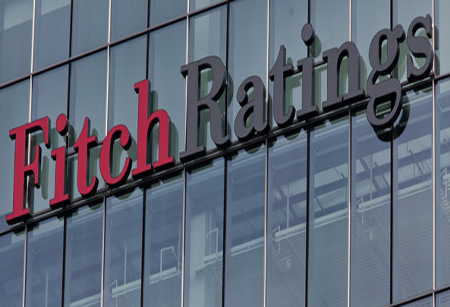Fitch has upgraded Georgia’s rating to ‘BB’ from ‘BB-‘. The outlook is stable.
The upgrade was due to the trend that the Georgian economy has proved resilient to negative developments in 2018.
“Economic growth remained robust, the currency was relatively stable and the National Bank of Georgia (NBG) built reserves despite a severe economic shock in Turkey and heightened sanctions risk in Russia,” Fitch said in a release on February 22.
Georgia’s current account deficit (CAD) is structurally still high, but Fitch estimates that it narrowed to 7.5 percent of GDP in 2018, despite the testing external environment.
“Rising tourism revenues and remittances, notably from the EU, and exports resulted in an estimated 13.9 percent increase in current external receipts. The first quarterly current account surplus on record was recorded in 3Q, the peak tourism season,” the agency said.
Fitch forecasts further narrowing of the CAD as the recently launched funded pension pillar will likely encourage savings in the country. The deficit is expected to remain over 7 percent of GDP to 2020, which is still large if compared to the current ‘BB’ median of 2 percent.
Furthermore, the Fitch forecasts inflation to remain in line with the NBG target of 3 percent in 2019-2020 which is below the current peer median of 3.5 percent.
As for economic growth, the Fitch expects it should be bolstered in 2019 by a pick-up in capital spending, which dipped last year. Overall, growth potential is estimated between 4.5 to 5 percent by the NBG and at 5.2 percent by the IMF.
“Net foreign direct investment slowed in 2018 to 7.4 percent of GDP, from 9.5 percent in 2017, due to the completion of a large infrastructure project. We expect it to recover in 2019-2020 to an average 8 percent of GDP, boosted by new Free Trade Agreements, large projects in the transportation sector and development of the Anaklia port,” the ratings agency said.
External finances remain a key rating weakness for Georgia according to Fitch, with net external debt at 61.9 percent of GDP at the end of 2018, higher than the current ‘BB’ median.
“Georgia is highly vulnerable to an external shock that would put downward pressure on the currency and lead to a sharp rise in external debt service. Low external liquidity, at 107.5% versus 150.3% for the current ‘BB’ median, provides little buffer to the economy in case of a surge in external financing needs,” Fitch estimated.
On the other hand, the rating agency says that the governance and business environment indicators are well above the current medians of ‘BB’ category peers, with Georgia ranking 6th out of 190 in the 2019 World Bank Ease of Doing Business Indicator.
Moreover, the Fitch assesses political risks associated with unresolved conflict with Russia in occupied regions of Abkhazia and South Ossetia as ‘remaining material’.




